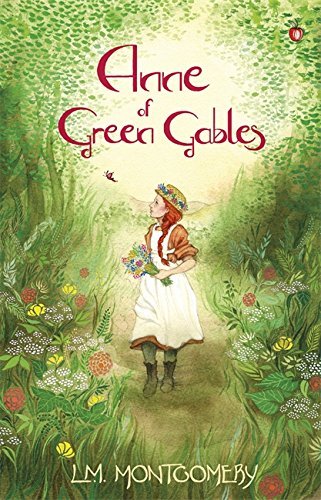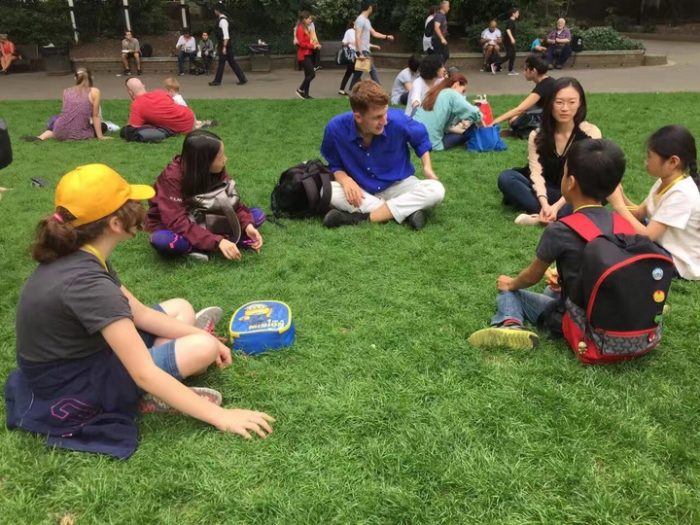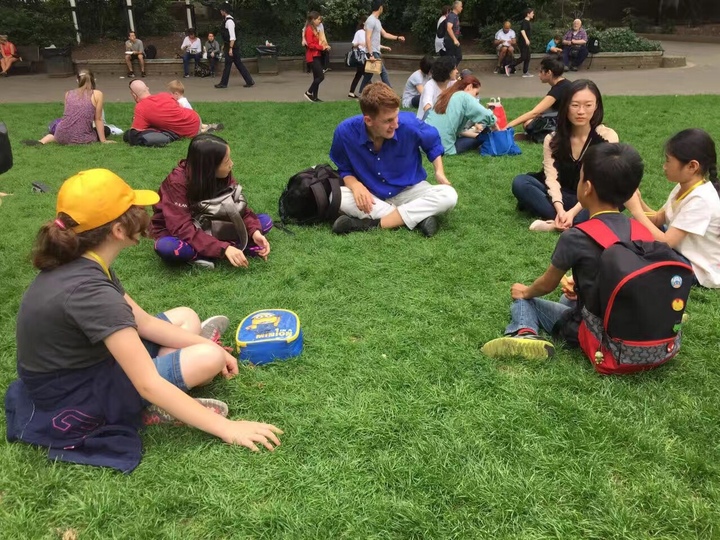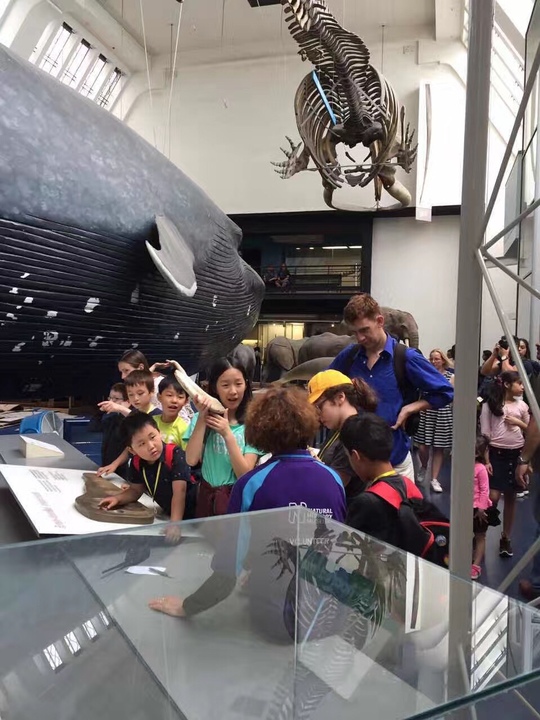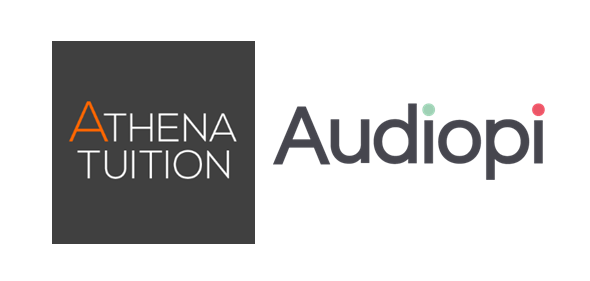We are so proud of the wide variety of tutors we have working with us at Athena Tuition, so every month we will be publishing a Ten Questions/Ten Minutes interview with one of them to highlight their expertise. This month’s tutor is Ola Makinde, an experienced tutor who specialises in entrance examination preparation. With many students taking their entrance exams in the next week or so, we are delighted that Ola has shared some of her experiences with us. So, without further ado…

1.Ola, thank you for taking the time to talk to us at Athena! For those reading who aren’t familiar with you, please tell everyone a little about yourself! What did you do before tutoring?
Hi, it’s no problem! I am a part-time generalist tutor, but I focus on entrance exams from 7+ to 13+. I have a degree in Molecular Genetics from King’s College London and just recently finished my Msc in Genomic Medicine. I also work in a school as a teaching assistant.
2. What drew you to tutoring, and how long have you tutored for?
Actually, how I got into tutoring was an accident! My maths teacher while I was in sixth form recommended me to the nearby school to help students with their GCSE maths, and I did that until I left sixth form. I have been tutoring since then, so it’s now been 7 years which is quite a long time really. The idea of sharing my knowledge and helping someone with my skills is what has made me to keep tutoring in a way.
3. And what, for you, is the most rewarding aspect of being a tutor?
The most rewarding aspect, I think, is seeing the moment a student understands what they previously had problems with, in most cases it’s the student just saying: “Oh, I didn’t realise it was that easy”.
4. Seeing the moment something starts to ‘click’ can make everything instantly worthwhile! But let’s play devil’s advocate… what do you find to be the most difficult thing about being a tutor?
The most difficult thing for me is believing in a student, and knowing they are capable of succeeding, but trying to convince them of this when they don’t yet believe it.
5. You tutor a variety of subjects – what might a ‘typical tutoring day’ look like for you?
It varies depending on the day of the week really. I start the day by getting the resources together that I am going to need (this changes depending on the student and the level). This is followed by travelling to the student’s house or the library in some cases [as some students prefer working in a neutral location]. Sometimes I have multiple students in a day.
6. It must help in that case to keep prepared and make sure all your resources are ready to go! Increasingly, many parents and students are being drawn to online tuition as opposed to traditional face-to-face tuition. What are your thoughts on online tuition, particularly for students who are preparing for 7+, 8+, 11+ and 13+ exams?
I think online tuition can be practical depending on the situation and how accessible the tutor is to the student. In terms of the entrance exams, I don’t think online tuition should be used too often, other than in situations where the student has to go away or in extenuating circumstances. Entrance examinations are different to other exams in the sense that for most of these students this will be their first serious examination. Therefore, I feel the students will probably benefit more from a personal approach to their tutoring actually getting to know their tutor and seeing them.
7. You have a lot of experience with helping students prepare for entrance examinations. What do you think is the biggest test facing students currently with entrance exams?
Hmmm, I think the biggest test facing students will probably be determination, effort and maintaining both until the exams are over. The students that do well are those that realise the amount of effort that these exams entail and the amount of practice they need to put in. The determination of the students can actually be drawn on a graph, the plateau level is what you actually want to avoid. At that point, their determination is still there but not as much as when they first started tuition by this point they think they are well prepared and relax their efforts.
8. Many students are sitting big entrance exams over the next fortnight; what would your suggestions be to them for making the most of the final revision days?
Get enough sleep the night before (!) and make sure you aware of the timings. I’d expect them to have done a practise test under timed conditions. Also, making sure you are familiar with each exam question style and what is expected in the exams. Finally, believe in yourself and the level of work you have put in until now.
9. Since you have been tutoring, have you noticed any major changes in these examinations? What do you think is the future of entrance examinations?
I think the poetry comprehension has become much more difficult over the years, and now the poetry comprehension looks at actually analysing the poem and what’s going on in the poem. The questions are generally getting a lot tougher and there is more problem-solving based in maths. Creative writing now has an added criterion in the mark scheme that looks at “fit for purpose” (i.e has the student thought about the reader when writing and reflected this in the language used in their writing). Thus, probably more in line to what students might expect to get in their GCSE’s. There’s certainly an analytical approach that has been introduced across all the entrance exams. I think the future will see the examinations get tougher and have higher cut-off boundaries.
10. And finally, parents of younger girls have recently expressed disappointment over the lack of strong female protagonists in reading lists geared towards those taking entrance examinations. Have you any book recommendations you’d like to share?
One of my favourite books with a lead female protagonist is probably Americanah by Chimamanda Ngozi Adiche. The female character in that book is very strong, outspoken and knows what she wants, both in terms of career and otherwise. While I would recommend the book, I think it’s a bit mature for the entrance examinations. My book recommendations for younger students would be the Harry Potter series for Hermione Granger. She wasn’t afraid to declare her love for reading, and she challenged what people thought of ‘muggles’. Another book I’d recommend is the Ramona Quimby series; I loved this book growing up. I think I saw a kindred spirit in Ramona because she wasn’t afraid to play with boys and get messy! She challenged the idea that girls had to play nice and be ‘proper’. If something was fun she did it and embraced everything. Finally, I’d recommend, The Chronicles of Narnia. Lucy Pevensie was so brave; she was true to herself and stood up for what she believed in and I think that’s one of the most admirable traits a person can have.
Thank you Ola, for your time and insights! And best of luck to all students taking some big exams in the next few weeks!




